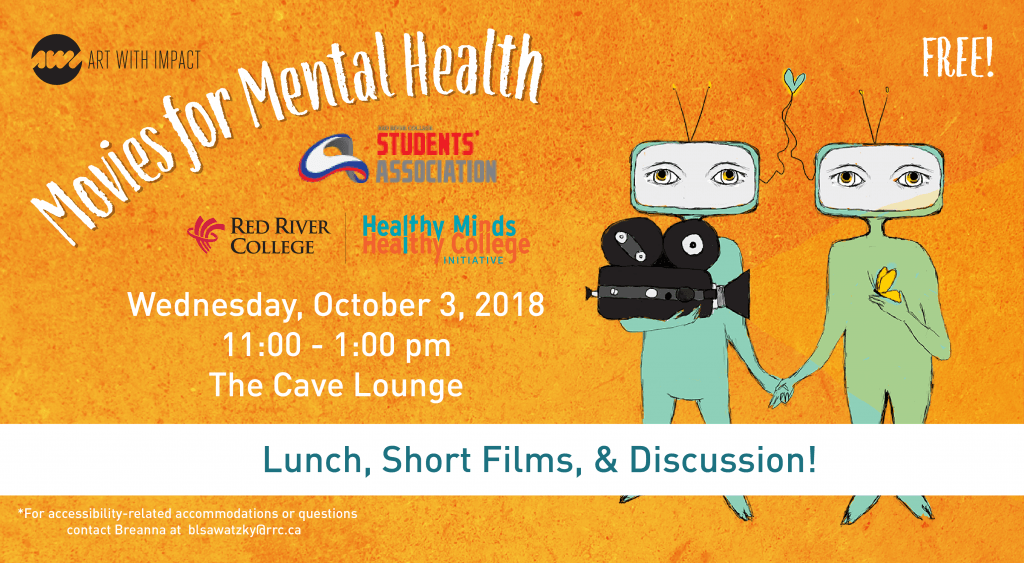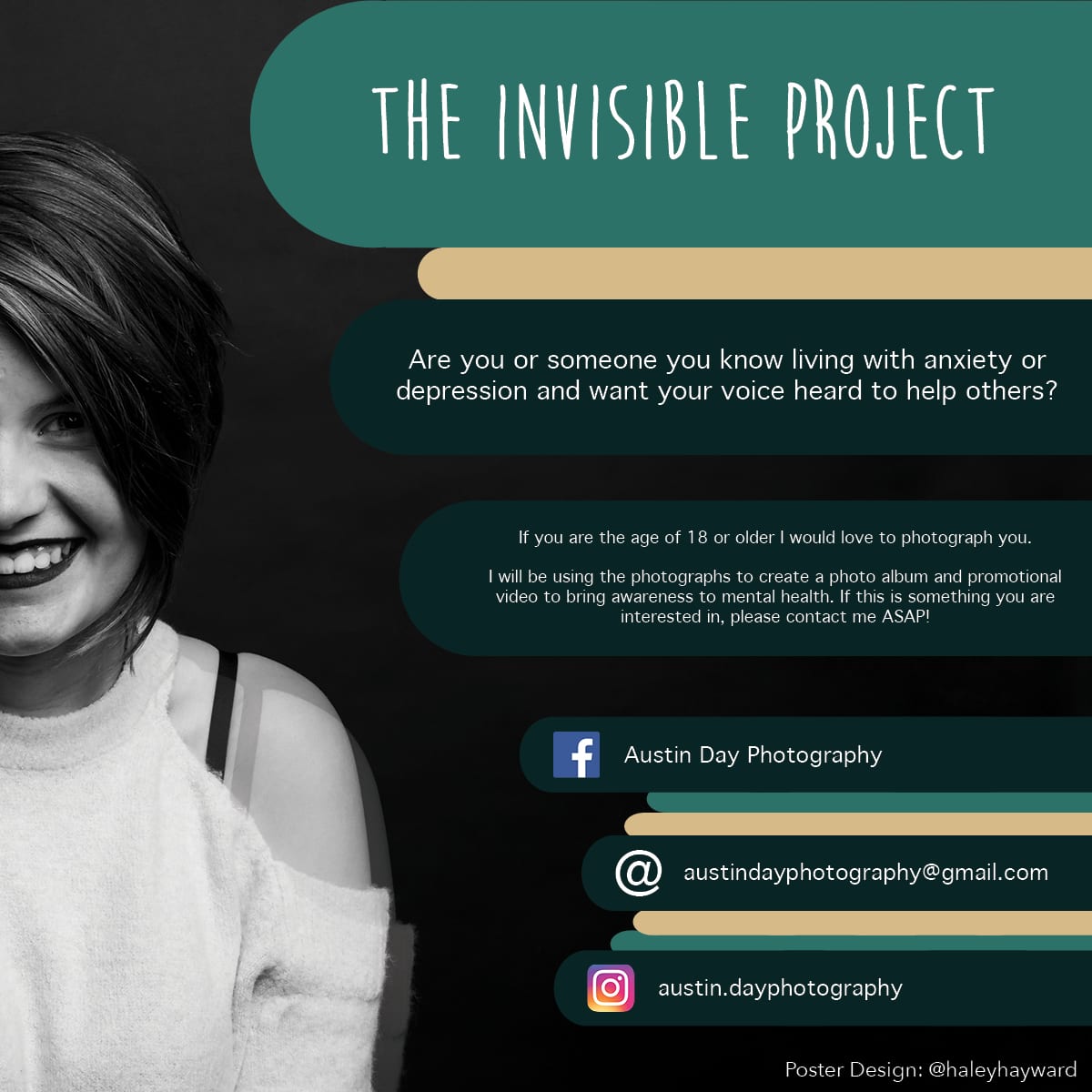Movies for Mental Health: You’re Invited!
Red River College is hosting a FREE event called “Movies for Mental Health,” an interactive workshop run by a non-profit called Art With Impact that uses the emotional power of short film to initiate dialogue with students on the topic of mental health.
This peer-to-peer learning event is two hours long and consists of pizza lunch, a facilitated discussion, three short films from Art With Impact’s library , and a resource panel with campus and community services.
Join us in creating a healthy environment at RRC through dialogue and growth!
Wednesday, October 3rd, 11am – 1pm in The Cave Lounge at NDC. Free pizza lunch for all who attend!
This event is sponsored by the Healthy Minds Healthy College Initiative and RRC Students’ Association as we observe Mental Illness Awareness Week. All students and staff are welcome.






















